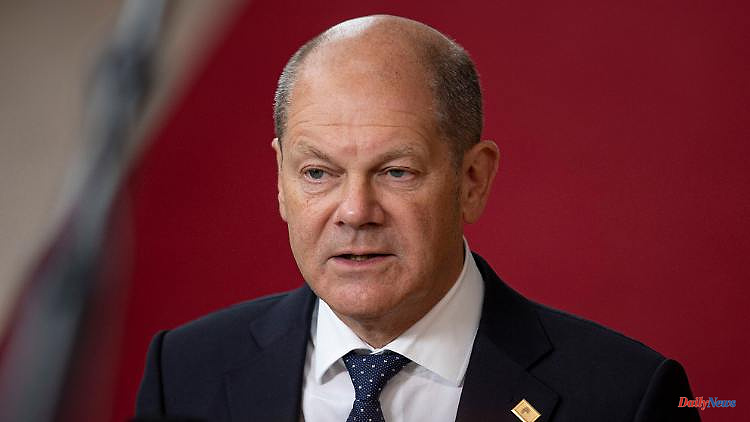Olaf Scholz falls to the lowest value so far in the Chancellor question. The governing party SPD is still only the third strongest force in the trend barometer, five points behind the Greens and ten points behind the Union.
The SPD is down two percentage points this week. On the other hand, both the opposition Union and the traffic light partner Greens have increased by one point compared to the previous week. All other parties remain unchanged.
If there were a federal election now, the parties could expect the following result: CDU/CSU 29 percent (2021 federal election: 24.1 percent), SPD 19 percent (25.7 percent), Greens 24 percent (14.8 percent), FDP 7 percent (11.5 percent), AfD 9 percent (10.3 percent), Left 4 percent (4.9 percent). The SPD is now ten points behind the Union parties and five points behind the Greens. The proportion of non-voters and undecided is currently 21 percent and thus below the proportion of non-voters in the federal election (23.4 percent).
Incumbent Olaf Scholz's chancellor preference falls below 40 percent for the first time. However, CDU leader Friedrich Merz can hardly benefit from this. If those entitled to vote could elect the Chancellor directly, 39 percent would currently choose Scholz, two percentage points less than in the previous week. Merz would choose 20 percent, a plus of one point.
84 percent of SPD supporters would choose Scholz, while only 50 percent of CDU/CSU supporters would choose Merz.
When asked which party is best at dealing with the problems in Germany, the Greens are ahead with 23 percent (three points more than in the previous week). An unchanged 12 percent of those eligible to vote trust the Union, 11 percent the SPD (- 2 points), 2 percent the FDP (- 1) and 4 percent ( 1) the other parties to have political competence. 48 percent do not trust any party to solve the country's problems.
10 percent of Germans are currently assuming an improvement and 70 percent a deterioration in the economic situation in Germany. 18 percent do not expect any change in the economic situation.
As at the beginning of the year, only a small minority of 6 percent believe that consumer prices will soon fall again. The vast majority of Germans expect consumer prices to remain as high (38 percent) or even rise further (56 percent). In January, 46 percent had expected rising consumer prices.
Just over a quarter of Germans (26 percent) feel that the federal government is doing enough to fight inflation. On the other hand, almost two-thirds (65 percent) believe that the federal government must do more to combat inflation. This view is shared by a majority in all political camps.
The data was collected by the market and opinion research institute Forsa on behalf of RTL Germany from May 24th to 30th, 2022. Database: 2004 respondents. Statistical error tolerance: /- 2.5 percentage points. The data on the current price increases were collected on May 27th and 30th, 2022. Database: 1006 respondents. Statistical error tolerance: /- 3 percentage points.












